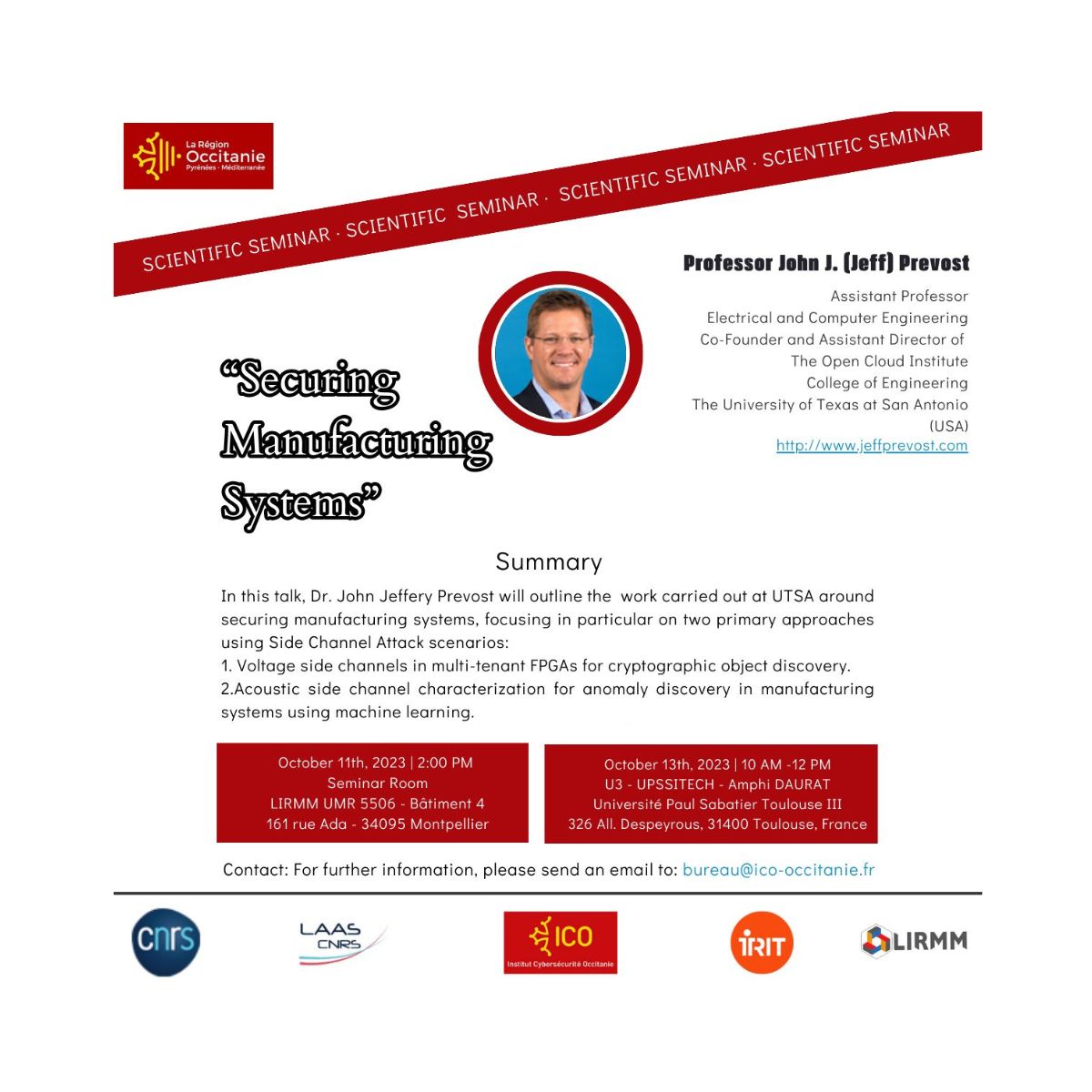“Securing Manufacturing Systems”
Pendant la semaine du 9 au 13 octobre 2023, l’ICO a eu le plaisir d’accueillir le Dr. John Jeffery Prevost, Prof. à l’Université de Texas – San Antonio (États-Unis), qui a préparé un séminaire ouvert à tous intitulé “Securing Manufacturing Systems”, présenté au LIRMM (Montpellier) le 11 octobre et à l’UT3 (Toulouse) le 13 octobre, dans le cadre de sa visite scientifique en Occitanie.
